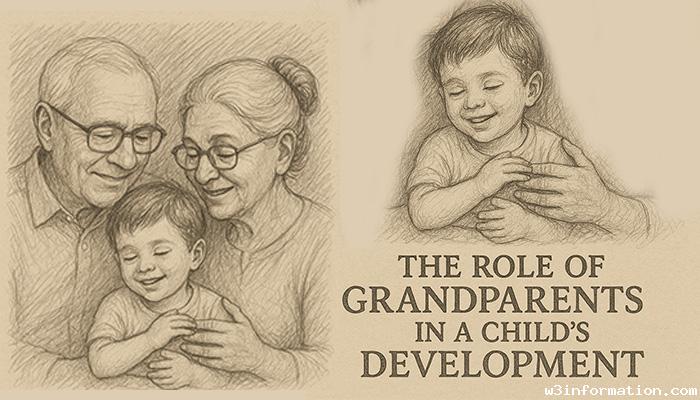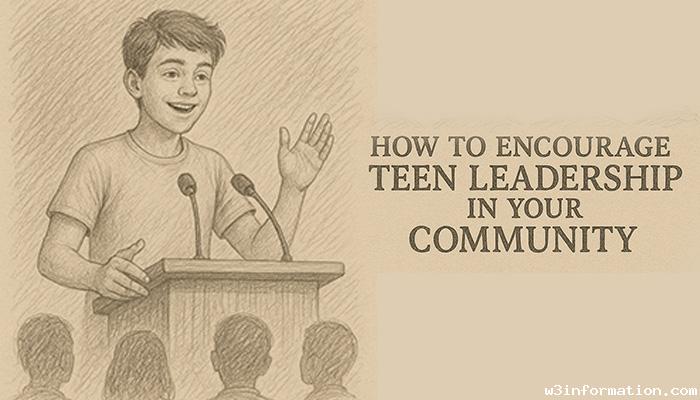The Role of Grandparents in a Child’s Development
Grandparents provide essential emotional and social support alongside cognitive development that enhances parental efforts during a child’s upbringing. Today’s common nuclear family structures and hectic schedules make grandparents vital sources of stability and tradition while providing children with unconditional love throughout their developmental stages.
This blog examines diverse ways grandparents assist child development while highlighting intergenerational bonding benefits and offering practical tips for parents and caregivers who want to build strong grandparent-grandchild connections
Emotional Foundations: The Unseen Strength of Grandparental Love
A Safe Emotional Haven
Grandparents frequently provide children with emotional stability through their unwavering support. Grandparents provide a stable source of love and protection due to their tranquility and life experience during family changes like divorce or parental job shifts.
Children who maintain close relationships with their grandparents tend to experience higher self-esteem and emotional resilience. The bond between children and their grandparents serves as a substitute attachment figure which strengthens their sense of inclusion and mitigates stress-related anxiety.
Unconditional Acceptance
Grandparents provide unconditional acceptance while parents focus on discipline and developmental milestones. Children benefit from unconditional acceptance because it makes them feel valued as individuals beyond their accomplishments which positively impacts their emotional health and self-identity development.

2. Cognitive and Language Development: Everyday Learning Through Stories and Interaction
Enhancing Language Skills
Grandparents who read stories to children while singing songs and holding conversations provide essential support for the development of children’s language skills. Their storytelling combines complex vocabulary with historical knowledge and cultural details to expand children’s global perception.
Example: As grandparent storytellers share folk tales and family stories children learn about figurative language usenarrative sequencing and moral reasoning which develop essential cognitive skills.
Stimulating Curiosity and Knowledge
Grandparents are natural teachers. By engaging in activities like gardening and cooking they teach children practical skills through everyday interactions. Real-world learning activities support traditional schooling while igniting both curiosity and creative thinking.
Grandparents create an interaction pace that promotes thoughtful reflection and deep thinking instead of immediate rewards.
Cultural Continuity and Identity Formation
Grandparents make their most significant impact by teaching subsequent generations their cultural heritage. Through traditional recipes, religious practices, language and family rituals they serve an essential purpose in identity preservation.
Children develop a sense of rootedness through the transmission of cultural traditions. Understanding their origins helps individuals establish who they are which builds their social identity and personal confidence.
Intergenerational Wisdom
Family stories and important life lessons come from grandparents who safeguard moral teachings. Children benefit from their elders' lived experiences because these stories provide essential viewpoints for ethical decision-making and comprehension of complex life situations.
4. Social and Behavioral Development: Learning from Example
Modeling Empathy and Patience
Children frequently mimic the behaviors they observe from people in their surroundings. Grandparents who embody patience and nurturing serve as role models for children by demonstrating social behaviors including empathy and compassion.
The way people interact teaches children how to establish respectful and kind interpersonal relationships which forms the foundation for emotional intelligence and resolving conflicts.
Encouraging Prosocial Behavior
Children in multigenerational homes or close-knit families witness caregiving activities firsthand. Children learn about cooperation and gratitude when they watch grandparents help their parents and take part in household activities while interacting socially.
5. Practical Support and Stability in Modern Families
Reliable Childcare and Daily Support
Working parents frequently depend on grandparents to provide dependable care for their children. Grandparents assist with school drop-offs and homework supervision along with meal preparation which reduces parental stress and maintains consistent childcare.
Grandparents provide caregiving that combines practical assistance with emotional investment unlike professional childcare providers.
Financial and Emotional Safety Net
Grandparents provide financial assistance occasionally and offer emergency support which creates a safety buffer to maintain family stability. Grandparents help alleviate financial burdens and give children reassurance when things are uncertain.
6. Psychological Benefits for Grandparents Themselves
Sense of Purpose and Joy
The relationship is mutually enriching. Grandparents who maintain active relationships with their grandchildren tend to experience increased life satisfaction along with diminished feelings of loneliness and an enhanced sense of purpose.
Research confirms that active participation in their grandchildren's lives helps older adults boost cognitive abilities while postponing age-related deterioration and supporting their mental well-being.
Bridging the Generation Gap
Through their interactions grandparents and grandchildren together expand their understanding of the world. Grandparents learn modern ideas through technology and trends from their grandchildren as they teach about historical events thus creating mutual learning in their relationship.
7. Navigating Challenges and Setting Healthy Boundaries
Balancing Involvement with Respect for Parenting Roles
Grandparents should participate actively in their grandchildren's lives but need to maintain clear boundaries. Grandparents and parents often disagree about child discipline methods as well as dietary habits and screen usage. Open communication and mutual respect between parents and grandparents help prevent confusion for the child.
Handling Overdependence
Frequent parental absence in some families leads to children becoming too reliant on their grandparents. Children should build strong parental attachments and learn proper family roles despite having good emotional bonds with grandparents.
Coping with Loss or Separation
When children lose their grandparents to death or live too far away to visit them they often face feelings of grief or longing. Through honest discussions and virtual interactions children can learn to manage separation from grandparents more effectively.
Supporting Healthy Grandparent-Grandchild Bonds
Encourage Quality Time Together
Families need to establish regular interaction opportunities between children and grandparents. Time spent together can include shared meals and walks along with celebrations while phone/video calls help bridge the distance barrier.
Integrate Grandparents into Everyday Life
Invite grandparents to participate in school functions and hobby projects and let them assist in decision-making processes when it makes sense. Children develop stronger feelings of respect and affection toward their grandparents when they see them involved in meaningful activities.
Celebrate Grandparents’ Day or Family Rituals
By engaging in simple traditions such as letter writing, cooking together or having storytelling sessions families can create cherished memories that develop stronger emotional connections over time.
Conclusion
Grandparents fulfill multiple roles that extend beyond their loving nature to serve as mentors and historians while also providing caregiving and emotional stability.
 How to Prepare for College: A Teenager’s Guide
How to Prepare for College: A Teenager’s Guide
 The Importance of Mental Health Awareness for Teens
The Importance of Mental Health Awareness for Teens
 Dealing with Social Media Pressure as a Teenager
Dealing with Social Media Pressure as a Teenager
 How to Encourage Teen Leadership in Your Community
How to Encourage Teen Leadership in Your Community
 The Power of Positive Peer Influence in Teenagers
The Power of Positive Peer Influence in Teenagers